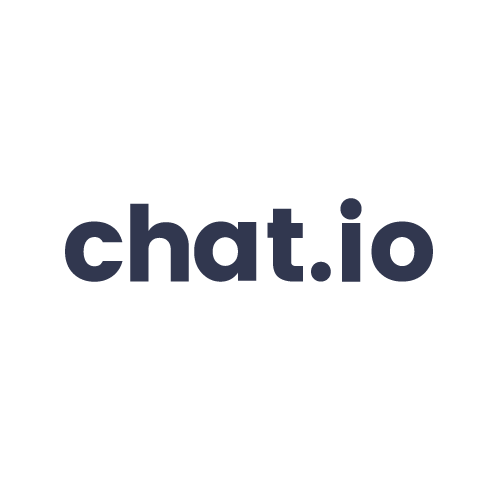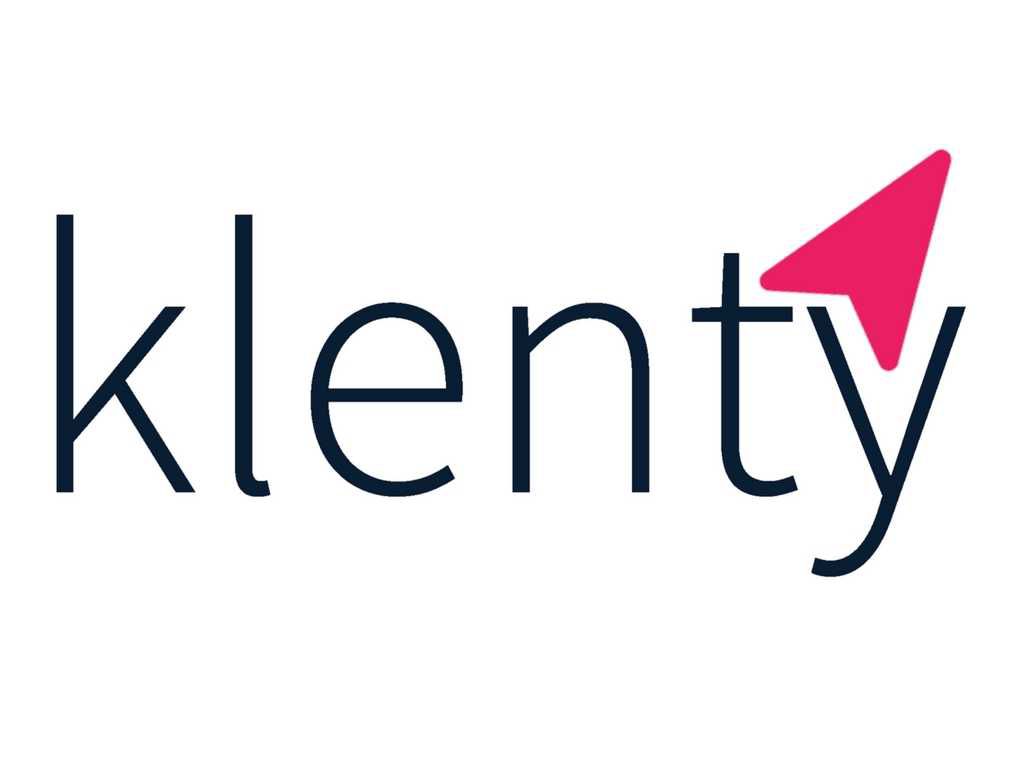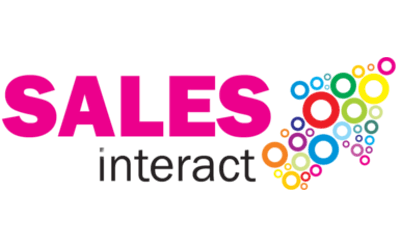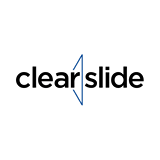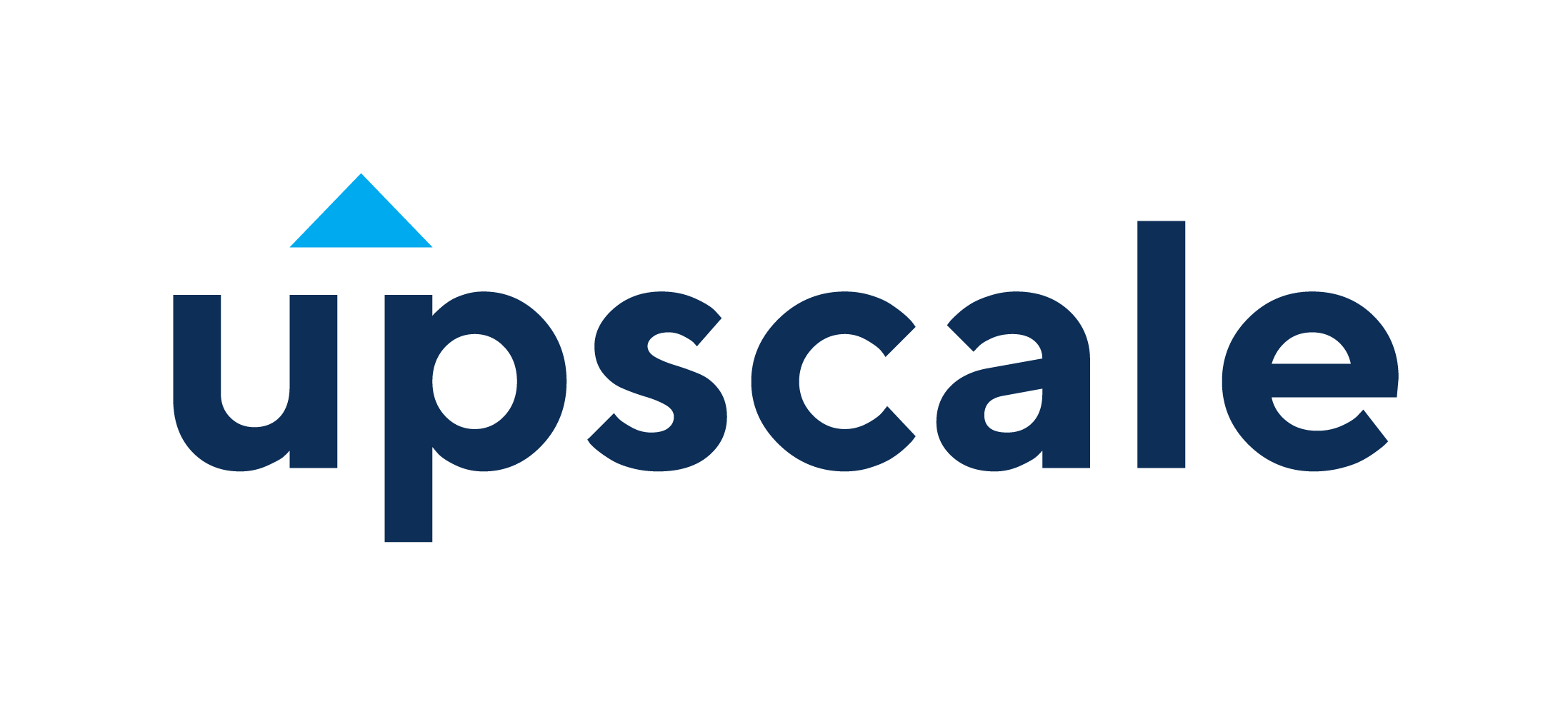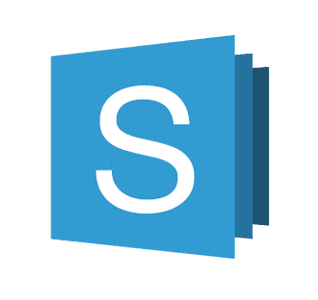Yes, most sales interaction software may be accessed from numerous devices and platforms. This enables sales teams to remain connected and productive whether they are at the office or on the go. Some software also includes mobile apps for iOS and Android devices, allowing you to easily access crucial sales data and connect with team members at any time. This flexibility is especially beneficial for remote or spread sales teams.
List of 20 Best Sales Engagement Software
Experience the seamless integration of the web into your email creation process with Mixmax. Our advanced tools allow you to schedule meetings, conduct surveys, and format code samples directly from your compose window, without the hassle of switchin...Read More Mixmax
chat.io solution for businesses to efficiently communicate with website visitors and convert them into loyal customers. Our customizable chat system allows for seamless customer engagement through various channels, such as website, SMS, email, and so...Read More chat.io
Zendesk Sell is a cloud-based CRM solution for businesses of all sizes. Streamline customer relationships and improve your sales teams performance with its intuitive interface. Take control of leads, deals, and interactions effortlessly, while the ro...Read More Zendesk Sell
Salesmate CRM - the intelligent sales management solution designed specifically for small and medium sized businesses. Effortlessly track sales progress and deals, and instantly access real-time sales reports for enhanced efficiency and organization...Read More Salesmate CRM
Reply is a AI-powered sales engagement platform. Streamline your cold outreach with automated processes and multiple mailbox integration. Utilize AI Chat to convert website visitors into scheduled meetings. Empower your sales team with powerful optim...Read More Reply
Bigin by Zoho CRM is the ideal solution for small businesses ready to elevate their customer relationship management from outdated spreadsheets. Designed with ease of use and essential features, Bigin empowers businesses to boost their growth. Say fa...Read More Bigin by Zoho CRM
Valuecase - a dynamic digital tool designed for B2B sales teams to enhance their customer-centric sales approaches. Our user-friendly platform offers fully customizable options and a variety of standard add-ons to assist businesses in streamlining an...Read More Valuecase
Klenty is is the Outbound Sales Automation software created specifically for inside sales teams. Seamlessly prospect, connect, and pursue leads on a larger scale with direct integration to top CRMs like SalesForce, Pipedrive, and FreshSales. Monitor...Read More Klenty
Outreach.io is a Inside Sales solution that caters to the needs of startups, small businesses, and medium-sized enterprises. It equips sales teams with the tools they need to improve communication and achieve better results on calls, resulting in inc...Read More Outreach.io
Salesinteract is a CRM solution that provides a 30-day free trial without the need for a credit card. Our platform boasts a user-friendly dashboard that displays live sales and user data, eliminating the need for additional plugins. Experience unprec...Read More Salesinteract
Salesloft is a platform that simplifies your sales communication. With email and call tracking combined, you can gather valuable engagement data to guide your next move and streamline your sales process. Keep all your communication activities organiz...Read More Salesloft
Velocify LeadManager is a sales automation tool tailored for high-velocity sales teams. Our platform accelerates the lead response process, equipping your team with the tools they need to efficiently close deals. With Velocify LeadManager, rest assur...Read More Velocify
Welcome to Octadesk is a solution for managing your sales and service networks. Our platform simplifies customer conversations, giving you more time to provide exceptional service and drive sales. With Octadesk, you can effortlessly organize, monitor...Read More Octadesk
Hightail is a platform for seamless collaboration and project management. With its advanced tools, you can effortlessly share files and gather feedback from your team. Stay organized by keeping all project materials in one place. Boost your productiv...Read More Hightail
ClearSlide is a reliable, cloud-based platform that equips sales teams with robust analytics and comprehensive insights into customer interactions across multiple channels, including email, phone, and in-person. Our solution offers superior performan...Read More ClearSlide
forBinary is a sales engagement solution. With this mobile app, creating captivating and multilingual apps is a breeze - no coding skills needed. Boost your sales teams performance with features like broadcasted offer messaging, payment reminders, su...Read More forBinary - Sales Engagement Apps
Upscale is an innovative sales engagement software designed to drive revenue growth through targeted multi-channel sequences. Our platform streamlines sales processes, enabling sales teams to effectively convert leads and generate a consistent stream...Read More Upscale
Apollo.io is a sales engagement platform for lead generation and outreach automation. Easily integrated with your preferred CRM, this powerful platform offers advanced analytics and customizable workflows to drive revenue growth. With its productivit...Read More Apollo.io
Bloobirds is a outbound platform designed to streamline and optimize your sales process. Our platform seamlessly integrates with your playbook and go-to-market strategy, offering personalized guidance to your sales team. With Bloobirds, you can effic...Read More Bloobirds
Salespatron is a tool for sales presentations and client engagement. Keep all your sales materials securely stored in one place and share them effortlessly using trackable links. Simplify your sales process and make a lasting impression on potential...Read More Salespatron
Learn More About Sales Engagement Software
- What Is Sales Engagement Software?
- What Are The Recent Trends In Sales Engagement Software?
- Benefits Of Using Sales Engagement Software
- Important Factors To Consider While Purchasing Sales Engagement Software?
- What Are The Key Features To Look For In Sales Engagement Software?
- Why Do Businesses Need Sales Engagement Software?
- How Much Time Is Required To Implement Sales Engagement Software?
- What Is The Level Of Customization Available In Sales Engagement Software?
- Which Industries Can Benefit The Most From Sales Engagement Software?
- Conclusion
What Is Sales Engagement Software?
Sales Engagement Software, also known as Sales Enablement Software, is a sophisticated technology that enables sales teams to efficiently communicate with potential clients throughout the sales cycle. It is a single platform that streamlines and automates a variety of operations, including lead management, prospecting, appointment scheduling, and communication, allowing sales professionals to focus on developing connections and closing deals.
One of the key benefits of Sales Engagement Software is its ability to collect and organize client data from a variety of sources, including contact information, social network profiles, and website activities, giving sales teams a complete picture of their prospects. This information may then be utilized to develop individualized and targeted messaging for each prospect, boosting the likelihood of conversion.
Sales Engagement Software also provides tools for tracking and assessing the efficacy of sales outreach, revealing which communication methods and content are most effective with prospects. This data-driven approach enables sales teams to make data-backed decisions and adapt their strategies accordingly, resulting in better sales results.
In addition to data and analytics capabilities, Sales Engagement Software provides communication tools such as email templates, call scripts, and social media integration, making it easier for sales reps to reach out to prospects and engage with them at the right time and through the appropriate channels. Furthermore, Sales Engagement Software includes capabilities like job automation and workflow management, which allow sales teams to optimize their operations, save time, and guarantee that no leads fall through the cracks.
Overall, Sales Engagement Software is an important tool for sales teams since it makes them more efficient, organized, and effective in their efforts to close deals. Businesses that use this software should expect to see improved sales processes, more productivity, and better customer relationships.
What Are The Recent Trends In Sales Engagement Software?
The sales interaction software market has grown significantly in recent years as digital tools have been integrated into sales processes. As firms increasingly rely on technology to streamline their sales operations, demand for sales engagement software has surged.
To help customers make an informed decision, we've assembled a summary of the most recent trends in sales engagement software.
1. Interaction With Customer Relationship Management (CRM) Systems: One of the most popular developments in sales engagement software is interaction with CRM systems. This provides sales teams with a comprehensive perspective of their prospect and customer contacts, making it easier to tailor their approach and boost engagement. This interface allows sales professionals to view and update client information directly from the sales interaction platform, saving time and increasing efficiency.
2. AI And Machine Learning: Sales engagement software is increasingly using artificial intelligence (AI) and machine learning (ML). These technologies assist sales teams in analyzing and understanding consumer behavior, preferences, and patterns, allowing them to produce targeted and tailored communications. AI and machine learning also aid in the automation of repetitive processes and the identification of the most effective sales methods, allowing for better decision-making and improved outcomes.
3. Multi-Channel Communication: In the digital age, customers want to be able to communicate via a variety of channels. Sales engagement software currently enables several channels of communication, such as email, social media, phone, and live chat. This enables sales representatives to reach out to customers via their preferred channels, ensuring a seamless and consistent experience.
4. Mobile Optimization: With the rise of remote work and the widespread usage of mobile devices, sales engagement software companies are now providing mobile-optimized solutions. This enables sales people to stay connected and interact with prospects and customers on the go. Mobile-optimized software also includes tools like real-time notifications and project tracking, which help sales reps keep on top of their work and increase overall efficiency.
5. Predictive Analytics: Predictive analytics is another growing trend in the sales engagement software industry. By evaluating data from previous contacts and current market trends, this technology assists sales teams in determining which leads are most likely to convert, allowing them to prioritize and focus their efforts on high-value prospects. This not only saves time and effort, but also improves the likelihood of closing business.
Benefits Of Using Sales Engagement Software
Sales engagement software is a valuable tool for streamlining and optimizing your sales processes. It provides a wide range of features and perks that can considerably help your sales force and boost your company's overall performance.
Let's look at some of the primary advantages of adopting sales engagement software.
1. Improved Efficiency And Productivity: Sales engagement software automates processes like email outreach, follow-ups, and scheduling, freeing up your sales team's time to focus on developing prospect relationships and closing deals. With tools like as email templates, sequencing, and tracking, your team can be more organized and efficient in their attempts to convert leads into customers.
2. Improved Lead Management: Effective lead management is critical to effective sales. Sales engagement software allows you to effortlessly track and categorize prospects, schedule reminders for follow-ups, and rank leads depending on their level of involvement. This ensures that your staff focuses their time and effort on the most promising leads, boosting the likelihood of turning them into customers.
3. Personalized And Focused Communication: Sales engagement software enables you to tailor and focus your interactions with leads at various phases of the sales process. Advanced technologies such as lead scoring allow you to classify your contacts depending on their level of interest and adapt your messaging accordingly. This makes your approach more successful and enhances the likelihood of conversion.
4. Improved Analytics And Reporting: One of the primary benefits of adopting sales engagement software is the ability to collect and analyze data about your sales operations. With extensive analytics and reporting, you can monitor your team's performance, discover areas for development, and make data-driven decisions to enhance your sales operations.
5. Integration With Other Tools: Most sales interaction software connects with other tools such as CRM, email, and calendar, making it a one-stop shop for all your sales activity. This enables seamless data transfer and effective cooperation among team members, reducing the likelihood of errors and duplication of effort.
6. Improve Customer Relationship Management: Sales engagement software is also useful for maintaining and building client connections. With automatic follow-ups and targeted contact, you can keep your customers engaged and delighted, resulting in improved retention rates and customer loyalty.
Important Factors To Consider While Purchasing Sales Engagement Software?
Sales engagement software has become an indispensable tool for businesses, streamlining the sales process and improving client relationships. With so many alternatives available, selecting the proper software for your business can be difficult.
To help you make an informed decision, below are the key aspects to consider when selecting sales engagement software.
1. Features And Functionality: The software's features and functionality are the most important factors to evaluate. It should be capable of improving your sales process by providing lead scoring, email tracking, task management, and sales reporting.
2. Integration: Another important consideration is the software's ability to integrate with your existing systems and tools. It should integrate smoothly with your CRM, marketing automation software, and other sales tools to create a smooth workflow.
3. User-Friendly Interface: The software should be simple to use and understand, especially for non-technical users. A cluttered or confusing interface might reduce adoption and productivity. A user-friendly interface enables your sales force to focus on what is most important: developing customer connections and closing agreements.
4. Customization Options: Each organization has its own sales methods and requirements. Make sure the software has customization possibilities to meet your individual needs. This allows you to customize the program based on your sales team's preferences and workflow, boosting efficiency and productivity.
5. Mobile App Availability: In today's digital age, having a mobile app is essential for any program. Your sales crew may need to use the program while on the road, meeting clients or attending events. A mobile app makes it easy to track and manage sales operations, ensuring that no opportunities are lost.
6. Pricing: Sales engagement software is available at various price points, so it's critical to assess your budget and the value you'll get from it. While some software requires a one-time payment, others may use a subscription basis. Evaluate your alternatives and select the one that best meets your budget and needs.
7. Support And Training: Before making a purchase, verify with the software provider about their support and training offerings. A thorough onboarding process and continuing assistance can help your staff become acquainted with the software's features and maximize its potential.
What Are The Key Features To Look For In Sales Engagement Software?
When selecting the best sales engagement software for your company, it's critical to examine the main features that will best suit your sales process and help your team enhance productivity and outcomes.
Here are the key features to look for when comparing sales engagement software options:
1. Customer Relationship Management (CRM) Integration: Make sure the sales engagement software you chose works flawlessly with your CRM platform. This allows you to access and manage all of your customer data in one location, giving you a comprehensive perspective of your client interactions.
2. Email Automation: Look for sales engagement software that has email automation features. This feature enables you to build and schedule personalized emails to be sent to prospects at optimal times, boosting the likelihood of engagement and conversion.
3. Call Automation: In addition to email automation, look at sales interaction software that includes call automation. This feature lets you set up and schedule phone calls to contacts in your CRM, making it simple to keep track of your calling tasks.
4. Activity monitoring: Sales engagement software should provide activity monitoring features to assist you monitor and measure the efficacy of your sales activities. This tool can provide insights into email open rates, call duration, and other key metrics to help you understand what works and what needs to be improved.
5. Gamification: A sales staff that has fun and is engaged is more productive. Look for sales engagement software that includes gamification elements like leaderboards and badges to help motivate and incentivize your team members.
6. Modification: Because each sales team is unique, ensure sure the sales engagement software you select provides for modification to meet your specific requirements. This can include generating personalized email templates, phone scripts, and workflows.
7. Analytics And Reporting: The ability to measure and evaluate sales success is critical for making sound decisions. Choose sales engagement software with powerful analytics and reporting features to gather insights and make data-driven decisions.
8. Mobile Accessibility: As more sales people work remotely, having sales engagement software that is available on mobile devices is critical. This allows your team to stay connected and productive while on the fly.
9. Integration With Sales Tools: Look into sales engagement software that works with other sales tools you already use, such as lead generating or social media marketing software. This will streamline your sales process and increase overall efficiency.
10. Training And Support: When selecting a sales engagement software, do not underestimate the value of good training and support. To ensure your team's success, look for a provider who provides training resources as well as responsive customer assistance.
Why Do Businesses Need Sales Engagement Software?
Are your salespeople struggling to keep up with the ever-changing client journey? Do you find it difficult to engage with prospects and complete sales effectively? If so, now is the time to think about investing in sales engagement software. Sales engagement software is a strong tool that may help firms streamline their sales processes, increase client engagement, and drive revenue development.
Here's why your company needs it.
1. Centralized Communication: Sales engagement software helps you to consolidate all of your communication channels, including emails, phone calls, social media, and live chat. It eliminates the need for your staff to switch between platforms, saving valuable time and effort.
2. Personalized Customer Interactions: Using sales engagement software, you can tailor messaging and content to your prospects' behavior and preferences. This level of customisation can greatly boost consumer engagement and conversion rates.
3. Streamlined Follow-Ups: Following up with prospects is essential for closing business, but it may be tiresome and time-consuming. Sales engagement software automates and schedules follow-up actions, ensuring that no prospects fall through the gaps.
4. Data-Driven Insights: The program collects and analyzes data throughout the sales process, providing you with useful information about customer behavior and sales performance. You can utilize these information to fine-tune your sales strategy and increase overall efficiency.
5. Team Cooperation: Sales engagement software facilitates collaboration among team members, allowing them to work fluidly and close sales faster. It also enables managers to monitor team performance and identify areas for improvement.
6. CRM Integration: Many sales engagement software solutions integrate with customer relationship management (CRM) platforms. This integration streamlines the sales process by smoothly transmitting client data and conversation history between the two systems.
How Much Time Is Required To Implement Sales Engagement Software?
The time required to implement sales engagement software varies depending on numerous aspects, including the product's complexity, team size, and level of customization necessary. On average, the implementation process will take between 2 and 6 weeks. During this period, your sales team will need to receive training on how to use the software efficiently.
This will entail learning about the features and functionalities, as well as best practices for maximizing its potential. The software vendor may also require some time to configure the system and customize it to your specific business requirements. However, keep in mind that the time necessary for execution should not be the only aspect influencing your decision-making process.
It is critical to select a software vendor who provides dependable customer support and assistance throughout the deployment process to ensure a smooth transition. It is also advised that key stakeholders from your sales and IT teams participate in the implementation phase to ensure optimal software integration and utilization. This joint effort can help to accelerate the deployment process and boost overall user adoption.
What Is The Level Of Customization Available In Sales Engagement Software?
Sales engagement software provides a variety of customization choices to meet the unique demands and preferences of enterprises. This type of software, which includes personalized branding, tailored workflows, and automated activities, enables businesses to establish a distinctive and efficient sales process that corresponds with their goals and strategy. First and foremost, sales engagement software allows for brand personalization.
Businesses can customize the software with their own logos, colors, and themes, resulting in a consistent and professional brand image for their sales communications. This not only improves the entire user experience, but it also helps to establish brand recognition and credibility. Furthermore, the level of customization in sales engagement software enables firms to adjust workflows and activities to their sales processes.
Users can use particular rules and triggers to automate processes like sending follow-up emails, scheduling meetings, and updating customer information. This not only saves time and effort, but also maintains uniformity in the sales process, resulting in increased conversions and efficiency. Sales engagement software also allows for customization in terms of segmentation and personalization.
Users can categorize their contacts based on a variety of variables, including industry, location, and behavior, and tailor their messaging accordingly. This enables more tailored and relevant messaging, increasing the possibilities of engagement and conversion. Furthermore, many sales interaction software allow for integration with other tools and platforms, increasing customization and versatility. Businesses can link their preferred tools, such as CRM systems, email marketing software, or telephonic services, with sales engagement software to create a seamless and personalized sales process.
Which Industries Can Benefit The Most From Sales Engagement Software?
Sales engagement software is a strong tool that may significantly improve the sales process for firms across all industries. With its comprehensive features and capabilities, this software can assist organizations of all sizes in streamlining lead creation, improving prospect communication, and increasing conversion rates. But which sectors will benefit the most from sales engagement software? Let's have a closer look.
1. Technology: It's no surprise that the technology business is among the top choices for using sales engagement software. With a continuously changing market and severe competition, technological organizations can gain significantly from this software's superior features. Lead scoring, automated scheduling, and multi-channel communication are all features that can help technology companies stay organized and reach their target audience more efficiently.
2. Financial Services: The financial services business can benefit from sales engagement software as well, given its complicated sales procedures and diverse products and services. This software can help financial services firms track and manage leads, personalize communication, and eventually close agreements more efficiently. Furthermore, the analytics and reporting features of sales interaction software can provide useful insights in this data-driven market.
3. Real Estate: The real estate business can also profit significantly from sales engagement tools. This software can help real estate agents and brokers manage a big database of leads and schedule property viewings, streamlining the entire sales process. Sales engagement software, which includes automated follow-ups, personalized messaging, and email tracking, can help real estate salespeople keep organized and acquire leads more efficiently.
4. Marketing & Advertising: Sales engagement software is also useful for marketing and advertising companies. This software's capacity to track and prioritize leads enables agencies to discover and target the most promising prospects. Automated workflows and email templates can also help busy firms save time while focusing on developing efficient marketing strategies for their clients.
5. Healthcare: In today's fast-paced healthcare market, sales engagement software can be transformative. This software's advanced capabilities enable healthcare firms to handle patient leads, contact new clients, and arrange appointments seamlessly. Furthermore, analytics and reporting capabilities can provide significant information for healthcare firms aiming to improve patient acquisition and retention.
Conclusion
After conducting extensive study and analysis, it is apparent that investing in sales engagement software may significantly benefit your firm. This application has shown to be a useful addition for sales teams, helping to streamline communication with prospects and customers while also increasing productivity and income. When deciding which sales engagement software to buy, it is critical to consider your specific business requirements, budget, and desired features.
Prioritize solutions that provide robust automation, easy connection with your existing systems, and advanced performance analytics. Additionally, take advantage of free trials and demos to gain direct knowledge with the product and its usability. Seek feedback from other users and compare costs and customer service options.
Finally, selecting the correct sales interaction software can significantly improve your sales team's efficiency and success. By providing them with the necessary tools and resources, you can expect a positive return on investment and propel your organization to new heights. So make an informed selection and use sales engagement software to generate growth and achieve your business objectives.
Sales Engagement Software FAQ's
Can Sales Engagement Software Be Accessed Across Multiple Devices And Platforms?
Is Sales Engagement Software Future-Proof And Adaptable To Emerging Technologies Like AI, Blockchain Or IoT?
Yes, Sales Engagement Software is built to adapt and integrate with upcoming technologies such as AI, blockchain, and IoT. Sales Engagement Software promotes sales productivity, customer engagements, and sales process efficiency by employing these new tools.
It also enables sales teams to stay ahead of the competition and future-proof their tactics. Sales Engagement Software, with regular updates and improvements, is well-equipped to handle the ever-changing technology landscape and create excellent sales results.
Is There A Free Trial Offered To Assess Sales Engagement Software Before Committing?
Yes, many sales engagement software businesses provide free trials to prospective clients. These trials often last for a short time, such as 7 or 14 days, and provide full access to the software's capabilities. This enables you to evaluate its capabilities and determine whether it meets your requirements before making a commitment. Some companies provide demo versions or sandbox settings for a risk-free evaluation.
Does Sales Engagement Software Offer Data Security Features And Meet Regulatory Compliance Standards?
Yes, most sales engagement software includes data security safeguards and adheres to regulatory compliance norms. This guarantees that sensitive client data is safeguarded from unauthorized access and that the software complies with requirements such as GDPR, CCPA, and HIPAA. Data encryption, user authentication, and audit logs are common features of sales interaction software that protect data security and compliance.
Can Sales Engagement Software Integrate Seamlessly With Existing Tools And Platforms?
Sales engagement software is designed to automate and enhance the sales process, therefore firms must ensure that it integrates easily with existing tools and platforms. The good news is that most sales engagement software solutions provide built-in interfaces with popular CRM systems, email platforms, and social media outlets.
This eliminates the need for manual data entry and guarantees that all of your sales operations are consolidated and conveniently accessible in one location. With a seamless interface, you can harness the benefits of sales engagement software while also improving your sales approach.


